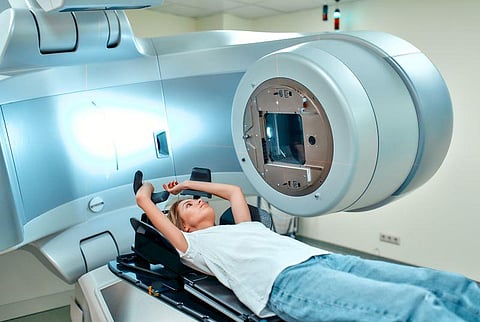FRIDAY, May 12, 2023 (HealthDay News) -- Nasal colonization with Staphylococcus aureus (SA) before radiation therapy (RT) is associated with acute radiation dermatitis (ARD) severity, and bacterial decolonization (BD) is effective for ARD prophylaxis, according to two studies published online May 4 in JAMA Oncology.
Yana Kost, from the Albert Einstein College of Medicine in Bronx, New York, and colleagues conducted a prospective cohort study to examine whether nasal colonization with SA before RT is associated with ARD severity in patients with breast or head and neck cancer. Data were included for 76 patients, all of whom developed ARD: 61.8, 28.9, and 9.2 percent had grade 1, 2, and 3, respectively. The researchers found that patients who developed grade 2 or higher versus grade 1 ARD had a greater prevalence of baseline nasal SA colonization (34.5 versus 12.8 percent).
In a second study, Kost and colleagues conducted a phase 2/3 randomized clinical trial involving patients with breast cancer or head and neck cancer (75 and two, respectively) receiving RT with curative intent. Participants were randomly assigned to receive BD or standard of care (39 and 38 patients, respectively). The researchers found that none of the patients treated with BD and 23.7 percent treated with standard of care developed grade 2 or higher ARD with moist desquamation. The results were similar for the 75 patients with breast cancer (none and 21.6 percent, respectively). The mean ARD grade was significantly lower for patients treated with BD versus standard of care (1.2 versus 1.6).
"The results of this randomized clinical trial suggest that BD is effective for ARD prophylaxis, specifically for patients with breast cancer, and support the further investigation of BD for ARD prophylaxis," the authors write.
Two authors disclosed financial ties to the pharmaceutical industry.
Abstract/Full Text 1 (subscription or payment may be required)
Abstract/Full Text 2 (subscription or payment may be required)


